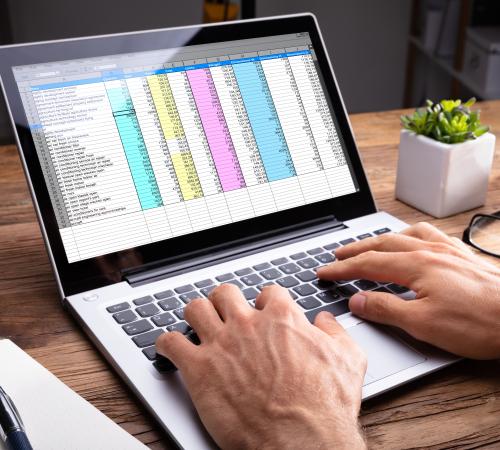

Since 2001 the number of self-employed people in the UK has steadily risen, from 12% of the workforce to 15.1% in 2017. The current figure accounts for 4.8 million people across the country.[1] It’s clear that being your own boss offers an attractive lifestyle for a large segment of the population, but with the prospect of enjoyable benefits comes added responsibility and financial risks.
To make sure you have complete control over your business finances and are making the most of opportunities to save, we’ve compiled some key information to help you plan and prepare for a robust financial outlook.
Self-employed tax return: what can I claim for?
Expenses that you are legally allowed to claim for are known as ‘allowable expenses’ and there are strict rules concerning what qualifies. Below is a list of key allowable expenses and the circumstances in which you either can or cannot claim for them.
- Business premises If you rent an office space you can claim for expenses for security, rent, maintenance and repair, contents insurance and utility bills. No allowance is made, however, for buying or building a property – owning your commercial space outright means that commercial property insurance should be high on your list of priorities.
If you work from home you can claim on a proportion of your utility bills, depending on how much of your home is used for business. If you work from home for more than 25 hours a month the government can assign a simplified expense rate (external link) to you.
- Financial and legal costs You’re allowed to claim for money spent on professional contractors such as accountants and solicitors for your business. Charges from your bank — such as overdraft fees, credit card charges and leasing payments — can also be included in your expenses. Your business insurance is also considered an allowable expense, keep this in mind when purchasing a self-employed insurance policy.
- Travel Business travel expenses (such as fuel, train tickets etc) should be claimed for, however you cannot claim for journeys from home to work (and vice versa), or for any travel expenses incurred from entertaining clients.
- Essentials Office stationery, stock, materials, marketing costs, clothing, subscriptions and staff costs are all taxable allowances.
It’s in your best interest to keep a detailed record of your expenses, along with receipts and proof of purchases. Should your tax returns ever be called into question, these items will be essential. It will also help you file your taxes accurately, making sure you’re not paying out of pocket for things that should be deducted from your business.
Pensions, mortgages and sick leave for the self-employed
Self-employment offers you much in the way of personal freedom, with the tantalising possibility of earning more depending on how much more you’re willing to work. But with the good comes the bad.
Although you may keep the lion’s share of your profits, you’re also faced with the reality that if you’re unable to work there might be no safety net but your savings. Figures suggest that 93% of self-employed people have no critical illness cover, meaning that if they were to fall seriously ill, it could add a financial disaster to an already difficult situation.
Another frequently overlooked consideration is pensions for the self-employed. As an employee you are legally entitled to a workplace pension, but if - as a self-employed individual - you decline to set yourself up with a pension fund, you could end up working far longer than you want or are physically able to.
Finally, for many people freelancing or running their own small business it can be difficult to acquire a mortgage. It’s something that should certainly be kept in mind when you are first branching out into self-employment, however it is by no means impossible - especially if you can prove your income to mortgage lenders by keeping your accounts in good order.
Insuring your self-employed business
Whatever risks your business faces, having the right insurance package can alleviate much of the uncertainty.
For the self-employed, insurance isn’t always first on the list of priorities, but it’s a vital way of ensuring your business doesn’t fall foul of unexpected fiscal hits. Naturally you’ll want to protect your office and its contents against theft or damage, but there are further considerations to make. What if a client claimed that you had been professionally negligent – how would you cover the legal costs? Or, if you accidentally damaged a customer’s property, or they hurt themselves when visiting yours?
If any of these scenarios sound plausible, we recommend heading to our Insurance FAQ Hub to find out more. Hiscox has put together introductory guides to the most important commercial covers; a definition of indemnity insurance for SMEs and a guide to public liability insurance.
Both of these covers would help cover legal fees and compensation costs in the event of a claim, allowing you to continue work.
Being self-employed comes with a lot of responsibilities, but none more-so than to yourself. Good record keeping, paying into a pension and always accounting for unexpected events will go a long way towards protecting you and your business from financial pitfalls. Ultimately, your aim should be to build a stable and secure enterprise that can sustain you in the long-term.
Disclaimer:
At Hiscox, we want to help your small business thrive. Our blog has many articles you may find relevant and useful as your business grows. But these articles aren’t professional advice. So, to find out more on a subject we cover here, please seek professional assistance.





